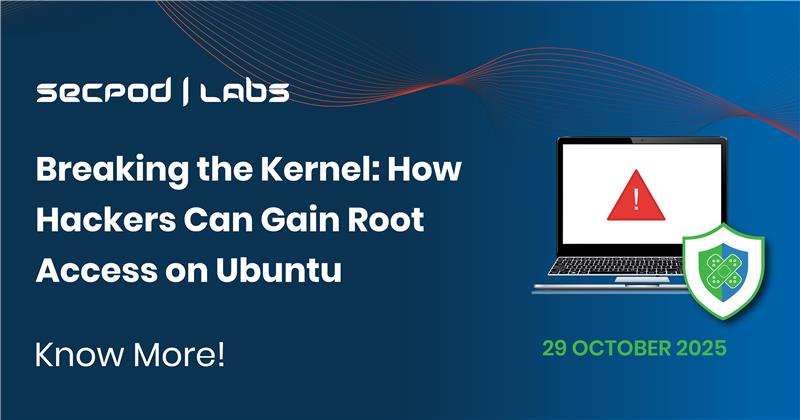A critical vulnerability has been discovered in Ubuntu’s Linux kernel, potentially allowing local attackers to escalate their privileges and gain root access on vulnerable systems. This flaw stems from a reference count imbalance within the af_unix subsystem, leading to a use-after-free (UAF) condition.
Technical Details
The vulnerability was exposed at TyphoonPWN 2025, where researchers presented a full proof-of-concept (PoC) exploit. It affects Ubuntu 24.04.2 running kernel version 6.8.0-60-generic, highlighting the ongoing challenges of kernel patch management in popular distributions.
The root cause is traced to Ubuntu’s incomplete implementation of upstream Linux kernel patches designed to address reference-counting bugs in the af_unix domain sockets. These sockets facilitate inter-process communication by enabling processes to exchange file descriptors.
Specifically, Ubuntu’s kernel retained the legacy garbage collection mechanism while incorrectly applying only the af_unix.c modification, omitting updates to garbage.c. This discrepancy results in the oob_skb losing one reference during allocation but undergoing two decrements, leading to a UAF on the 256-byte struct sk_buff object from the skbuff_head_cache slab.
Exploitation Method
Exploiting this vulnerability involves several sophisticated steps:
- Triggering garbage collection immediately after socket closure to separate the free and use phases.
- Halting execution using a FUSE filesystem mmap’d buffer to bridge the timing gap.
- Employing a cross-cache attack to free the dedicated slab.
- Overwriting the freed
skbto control its destructor call inskb_release_head_state, enabling RIP and RDI hijacking. - Bypassing KASLR using a prefetch side-channel variant of Entrybleed.
- Utilizing ROP chains to overwrite
modprobe_pathto/tmp/x, a shell script granting root privileges via usermodehelper invocation.
Tactics, Techniques, and Procedures (TTPs)
Attackers can exploit this vulnerability using the following MITRE ATT&CK tactics and techniques:
- TA0004 – Privilege Escalation: Exploiting a kernel vulnerability to gain elevated privileges.
- TA0005 – Defense Evasion: Bypassing security measures like KASLR to facilitate exploitation.
- T1068 – Exploitation for Privilege Escalation: Leveraging a use-after-free vulnerability to escalate privileges.
- T1027 – Obfuscated Files or Information: Utilizing techniques like cross-cache attacks and ROP chains to obfuscate the exploit.
Mitigation & Recommendations
Canonical has addressed this vulnerability by releasing an updated kernel on September 18, 2025. Users of affected Ubuntu versions are strongly advised to update immediately by running the following command:
sudo apt upgrade linux-generic
After the upgrade, verify that the kernel version is 6.8.0-61 or later.
Instantly Fix Risks with Saner Patch Management
Saner patch management is a continuous, automated, and integrated software that instantly fixes risks exploited in the wild. The software supports major operating systems like Windows, Linux, and macOS, as well as 550+ third-party applications.
It also allows you to set up a safe testing area to test patches before deploying them in a primary production environment. Saner patch management additionally supports a patch rollback feature in case of patch failure or a system malfunction.
Experience the fastest and most accurate patching software here.

